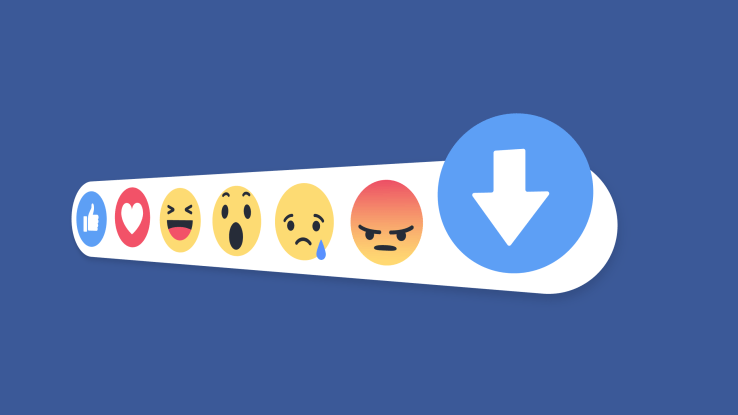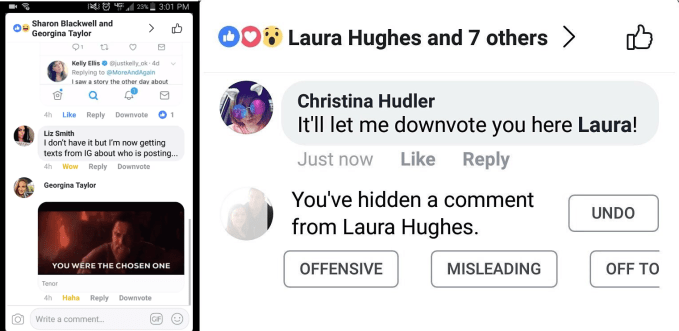
A Facebook spokesperson tells TechCrunch Facebook that the motivation behind the downvote button is to create a lightweight way for people to provide a signal to Facebook that a comment is inappropriate, uncivil, or misleading.
Here’s the statement Facebook provided: “We are not testing a dislike button. We are exploring a feature for people to give us feedback about comments on public page posts. This is running for a small set of people in the U.S. only.”
This is what the downvote button looks like up close:
 |
| Facebook confirms test of a downvote button for flagging comments. Image: TechCrunch |
Here you can see the downvote button on a comment thread, plus what happens when you click it. The screenshots come from Christina Hudler.
 |
| Facebook confirms test of a downvote button for flagging comments. Image: TechCrunch |
Not A Dislike Button
A dislike button has long been the most requested Facebook feature, but Facebook has never given in.Back in 2015, CEO Mark Zuckerberg responded to a Q&A question about it, saying:
We didn’t want to just build a Dislike button because we don’t want to turn Facebook into a forum where people are voting up or down on people’s posts. That doesn’t seem like the kind of community we want to create.Instead, Facebook built the Reactions options that let you respond to posts and comments with love, wow, haha, sad or angry emoji. Facebook also built reactions into Messenger with the option to give messages a thumbs-up or thumbs-down so you could show agreement or disagreement.
 |
| Facebook confirms test of a downvote button for flagging comment. Image: TechCrunch |
The downvote button ties in with Facebook’s recent push to enhance its users’ well-being by prioritizing News Feed content that drives meaningful interactions instead of passive, zombie browsing. That led Facebook to show fewer viral videos, which in turn contributed to a 700,000 user decrease in U.S. and Canada daily active users — its first decline ever anywhere — and Facebook’s slowest DAU growth rate it’s ever reported.
Sincerest form of flattery! Wish I'd trademarked it and “upvote” when came up with it. 😂😂 https://t.co/wJMxILChCV
— Alexis Ohanian Sr. (@alexisohanian) 8 Şubat 2018
That could eventually lead to a way for Facebook to bury these comments, or the people that post them. However, this will only open up more questions about censorship and what qualifies as inappropriate at a time when Facebook is already struggling to manage its responsibilities as what Zuckerberg calls “not a traditional media company.”
source:TechCrunch


Post a Comment